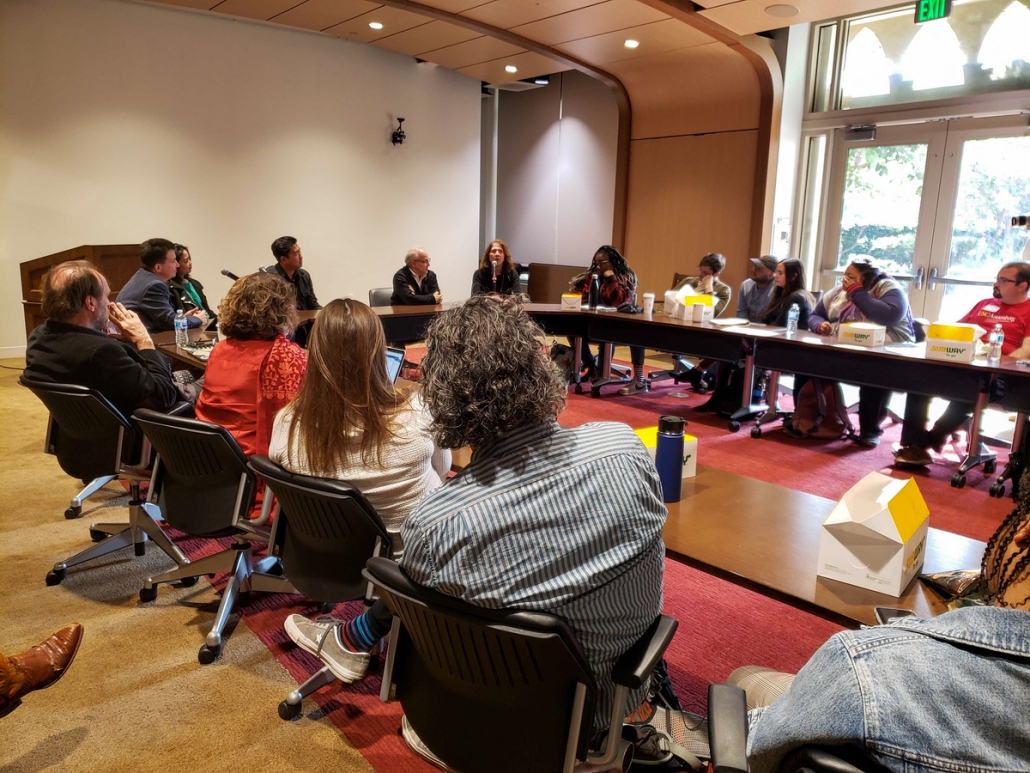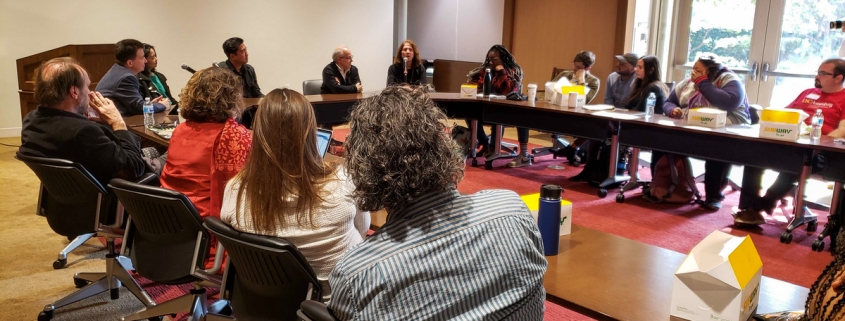Podcasters speak on industry at Annenberg panel event

(Sarah Yaacoub | Daily Trojan)
Five podcast industry experts shared their experiences creating podcasts with nearly 50 people in Wallis Annenberg Hall Tuesday. They spoke about the rise in popularity of podcasts and the future of the medium. Annenberg School of Journalism Director Gordon Stables moderated the event.
“We thought it was important to get folks in who have been at each stage of [their careers],” Stables said. “We wanted students to kind of see the scope of what people in the industry do.”
Paola Mardo, an Annenberg alumna who spoke on the panel, said finding her podcast’s target audience was pivotal in launching it. Mardo’s podcast, “Long Distance,” explores the intersection between millennial culture and the culture of first- and second-generation Filipino immigrant families.
“I know my audience: They’re Filipino Americans, they’re mostly millennials, they’re on Instagram,” Mardo said. “They want stories about them, about their experiences, about our experiences with immigrant parents or being immigrants ourselves.”
Kelly Park, a freshman majoring in communication, said she attended the event because of her interest in public broadcasting and was attracted by the opportunity to hear from podcast industry insiders who had found niches for their media.
“What they were talking about, just knowing your audience and why you’re making it and just keeping it on focus — that’s really interesting,” Park said.
Stables said there are currently an estimated 800,000 podcasts with a combined 30 million episodes, and the podcast industry has seen exponential growth in the two decades since its launch. However, the medium faces the same issues of economic sustainability that have plagued traditional newspapers since the introduction of online journalism platforms.
“We look back at 15 or 20 years ago and the way that the rise of the internet changed the newspaper industry,” Stables said. “The discussion was if you put your content available online and don’t ask people to pay for it, it’s hard to then remonetize the idea.”
Mardo said she had difficulty funding her podcast until she launched a Patreon. Nearly 83 of her listeners donate using the platform, allowing her to continue producing her biweekly episodes.
“It used to be a monthly show, and people would write me, like, ‘How can I support you so you can do this more often?’” Mardo said. “The fact that some people are giving me $10 a month, $20 a month, $2 a month, even — I think that’s crazy. It’s enough to pay for a Netflix subscription, let alone one podcast.”
PRX Chief Content Officer John Barth, who also served on the panel, began his communication career working in public radio but switched to podcasting in the early 2000s. With the increasing popularity of podcasts, creators should make an effort to keep making podcasts for particular segments, Barth said.
“Radio is reaching mass audiences and podcasting flips that on its head because it’s so individual and intimate,” Barth said. “As podcasting gets bigger, I don’t want to lose the connection to individual voices and individual set of ears.”

